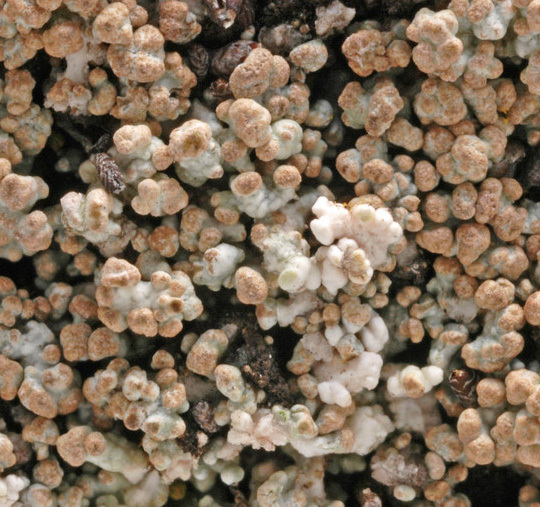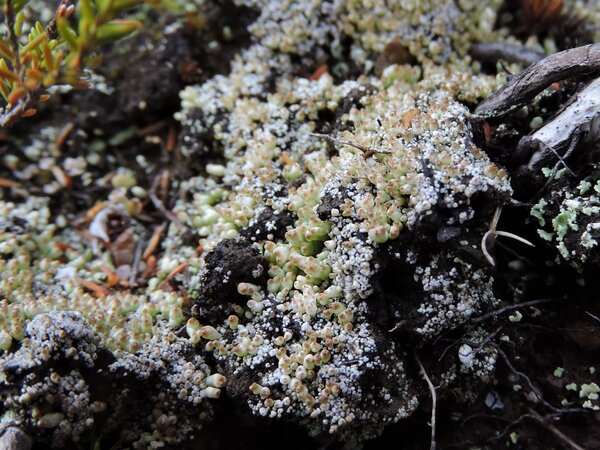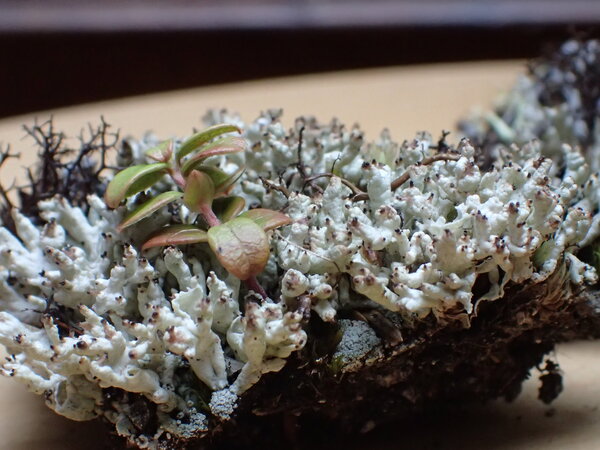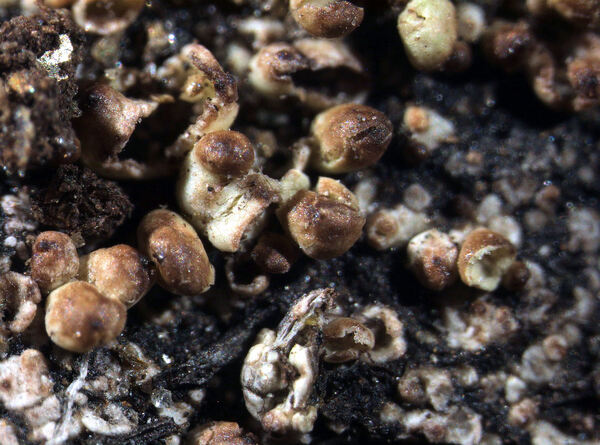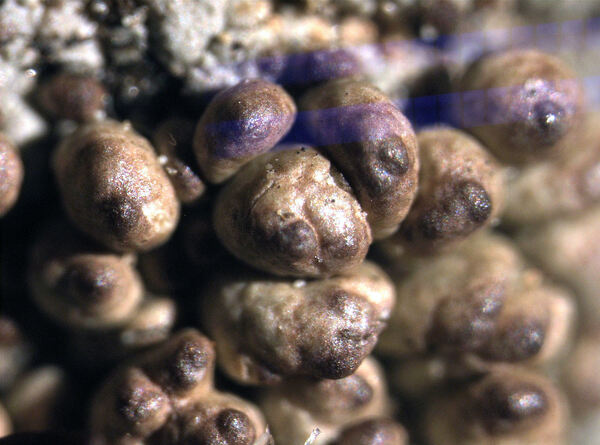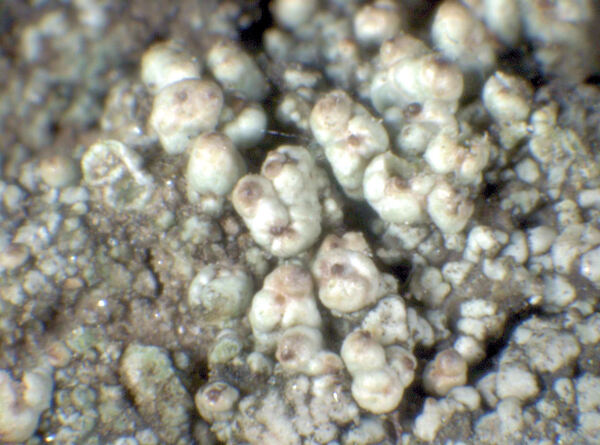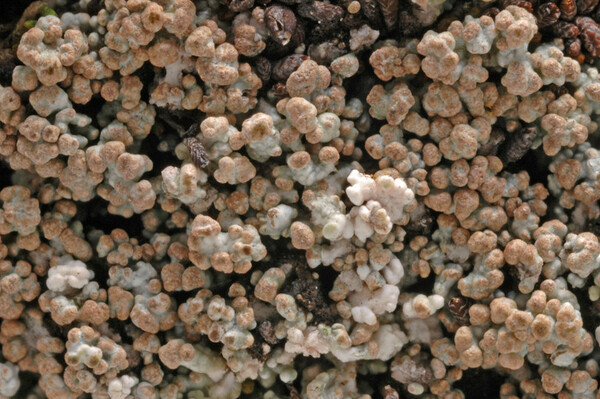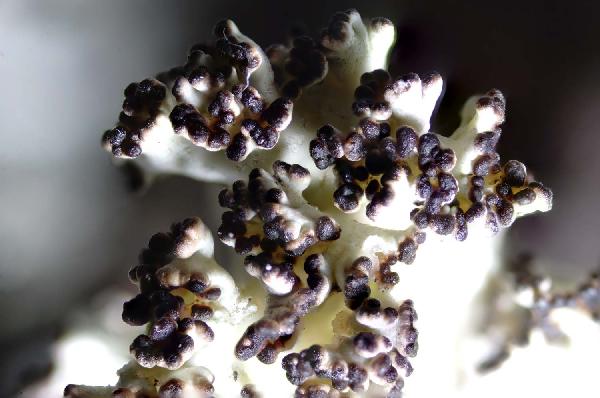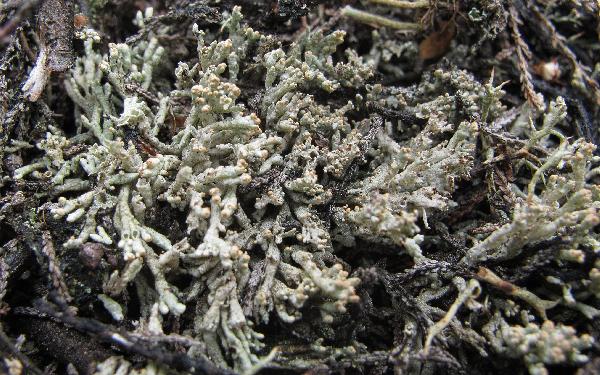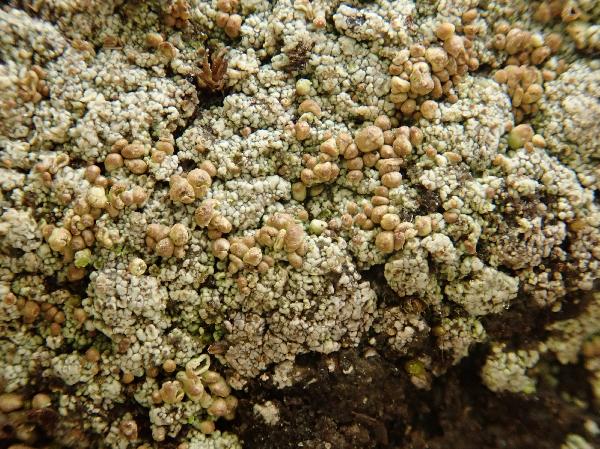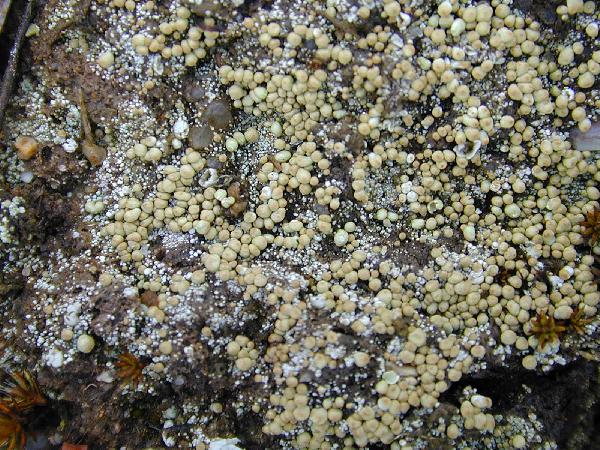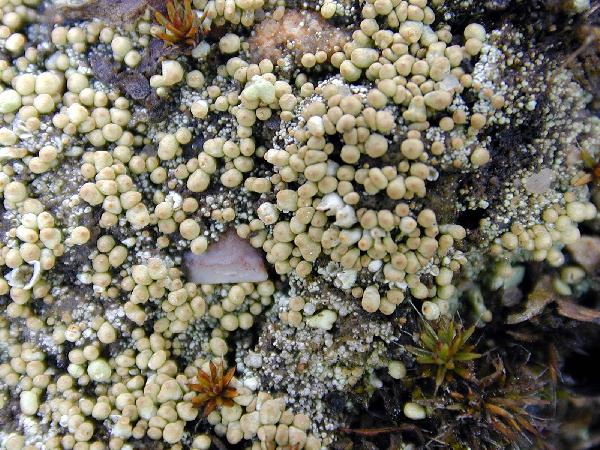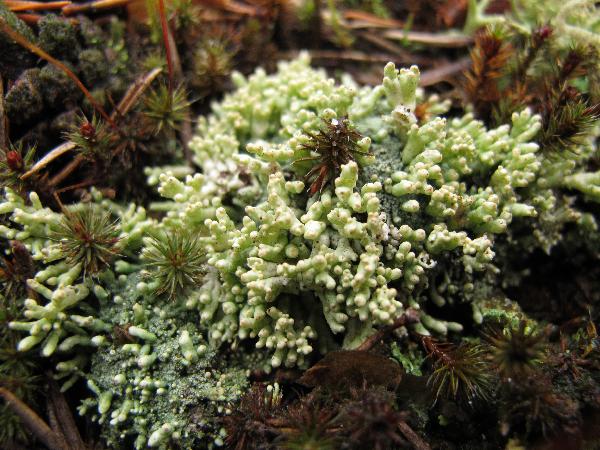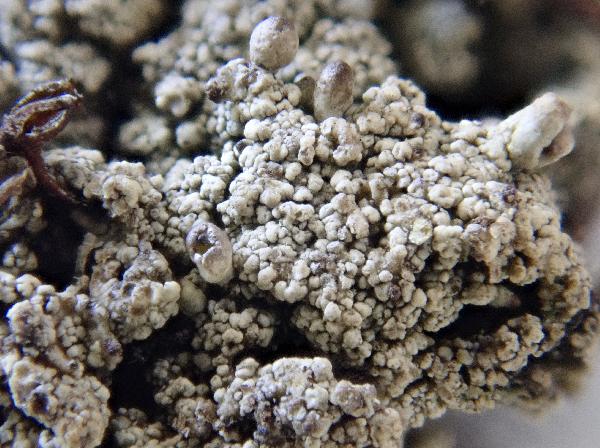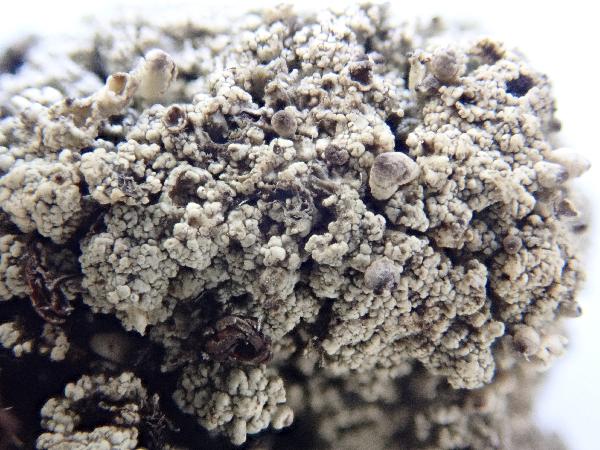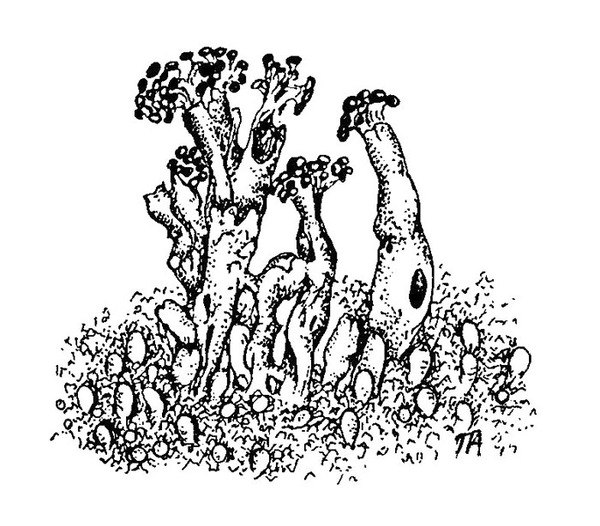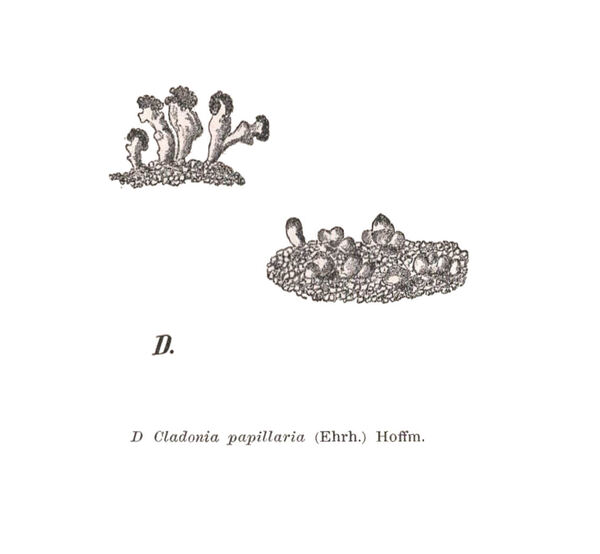Pycnothelia papillaria Dufour
Ann. Gén. Sci. Phys., 8: 46, 1821.
Synonyms: Biatora epimarta (Nyl.) Walt. Watson; Cenomyce papillaria Ach. nom. illegit.; Cladonia papillaria Hoffm nom. illegit.; Cladonia trapezuntica J. Steiner; Lecidea epimarta Nyl.
Distribution: N - Frl (Tretiach & Hafellner 2000), Ven (vidi!), TAA (Bilovitz & al. 2014, Nascimbene & al. 2022), Lomb (Gheza 2017, 2019b), Piem (Isocrono & al. 2004, Obermayer 2009, Gheza 2020), VA (Borlandelli & al. 1996, Piervittori & Isocrono 1997, 1999, Piervittori & al. 2004), Emil (Dalle Vedove & al. 2002, Benesperi & al. 2007, Tretiach & al. 2008, Fariselli & al. 2020), Lig (Ravera & al. 2022). C - Tosc (Benesperi & al. 2007). S - Si.
Description: Primary thallus crustose, persistent (rarely disappearing in exceptionally well-developed specimens), of ecorticate, greenish grey or whtish granules grouped into 20-40 mm wide rosettes. Podetia wart-like to short-cylindrical, cream-coloured, grey to brownish, hollow inside, 2-5(-10) mm tall, constricted at base, smooth, esquamulose, with rounded, darkened apices, mostly simple, but sometimes sparingly branched in upper part, with frequent, dark pycnidial ostioles at the tips, the internal surface cartilaginous and striate, <0.5 mm thick. Apothecia very rare, terminal, brown, convex, emarginate, 0.3-1 mm across. Asci 8-spored, clavate, thickened at apex, with a K/I+ blue tholus and a K/I+ strongly blue outer gelatinous sheath, Cladonia-type. Ascospores simple or 1(-3)-septate, colourless, fusiform, thin-walled, (7-)9-15 x 2-4(-5) µm. Pycnidia dark, more or less immersed, with a colourless slime. Conidia filiform, curved, 8–15 × c. 0.5 µm. Photobiont chlorococcoid. Spot tests: thallus K+ yellow, C-, KC-, P-; medulla UV+ blue-white. Chemistry: atranorin, and variable amounts of chloratranorin and lichesterinic, protolichesterinic and squamatic acids.Note: an arctic-alpine to cool-temperate lichen found on clay soil, often in Calluna-heaths; most frequent in the Alps, becoming much rarer southwards.
Growth form: Fruticose
Substrata: soil, terricolous mosses, and plant debris
Photobiont: green algae other than Trentepohlia
Reproductive strategy: mainly sexual
Commonnes-rarity: (info)
Alpine belt: rare
Subalpine belt: rather rare
Oromediterranean belt: extremely rare
Montane belt: very rare
Submediterranean belt: extremely rare
Padanian area: absent
Humid submediterranean belt: extremely rare
Humid mediterranean belt: absent
Dry mediterranean belt: absent
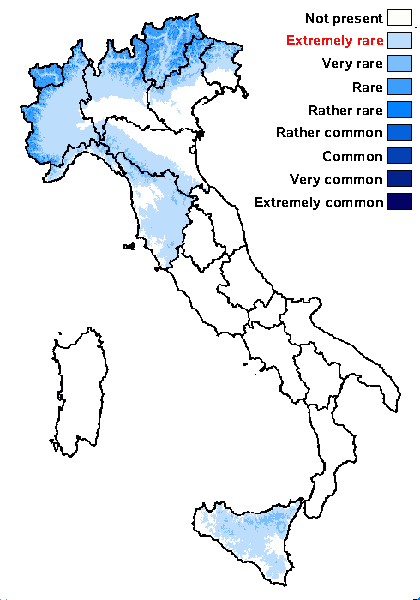
Predictive model
Herbarium samples
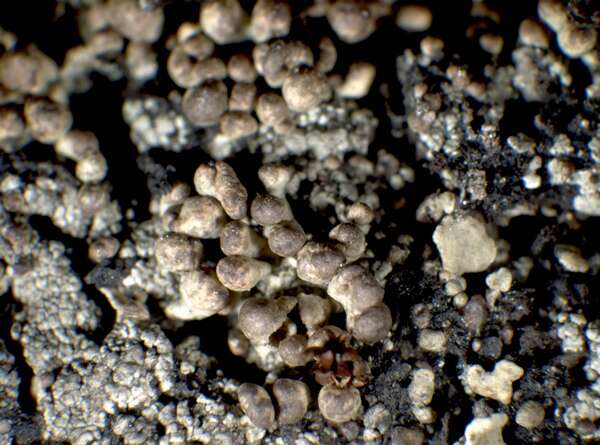

P.L. Nimis; Owner: Department of Life Sciences, University of Trieste
Herbarium: TSB (11504)
2001/11/29
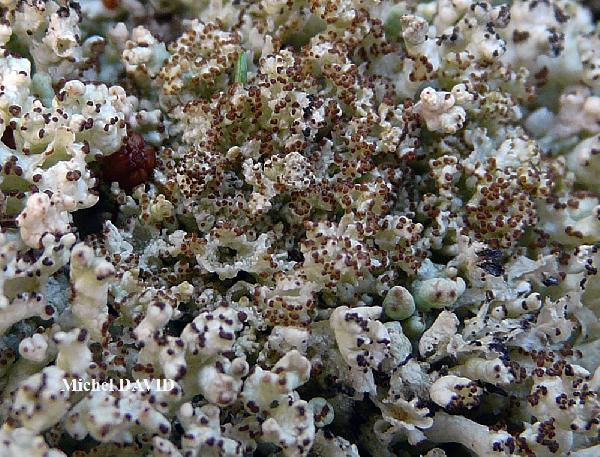
Michel David - Source: http://www.lichensmaritimes.org/index.php?task=fiche&lichen=251&lang=en
France, Camaret
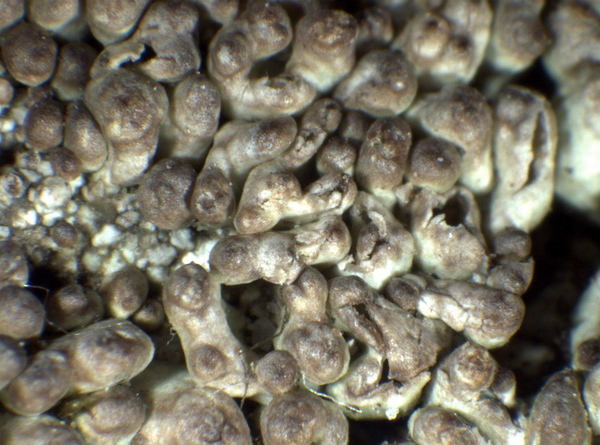

P.L.Nimis; Owner: Department of Life Sciences, University of Trieste
Herbarium: TSB (36806)
2008.02.25
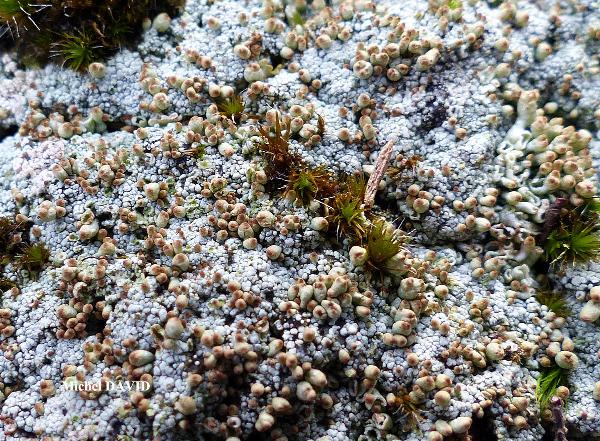
Michel David - Source: http://www.lichensmaritimes.org/index.php?task=fiche&lichen=251&lang=en
France, Cap de la Chèvre
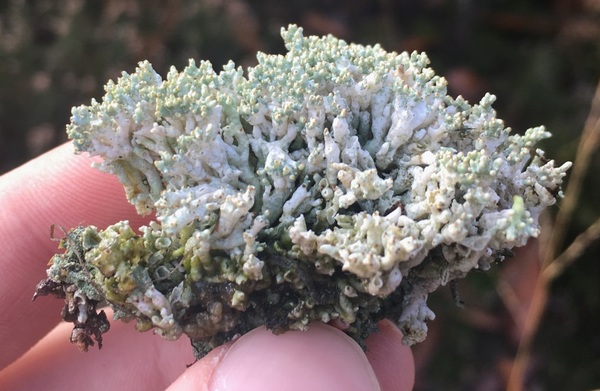
Gabriele Gheza - https://lichenidilombardia.home.blog
Italy, Piemonte, Biella, Val Sessera, 450 m
12/2018
very well-developed specimens, with almost no primary thallus
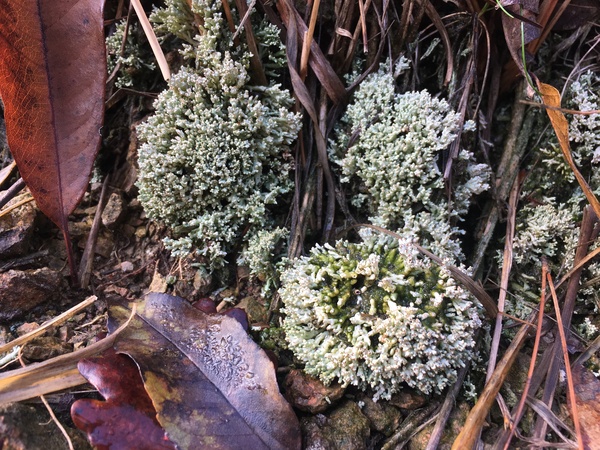
Gabriele Gheza - https://lichenidilombardia.home.blog
Italy, Piemonte, Biella, Val Sessera, 450 m
12/2018
very well-developed specimens, with almost no primary thallus
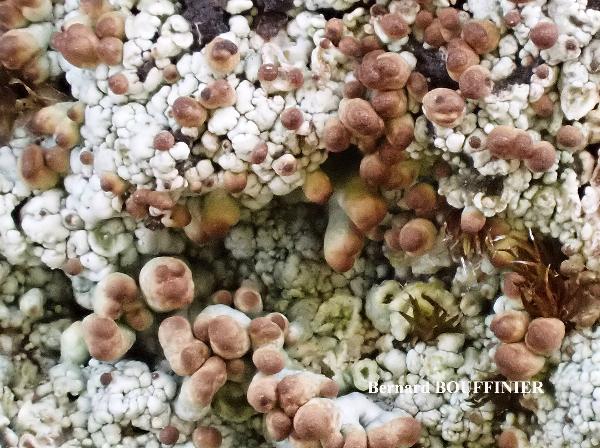
Bernard Bouffinier - Source: http://www.lichensmaritimes.org/index.php?task=fiche&lichen=251&lang=en
France, Cap de la Chèvre
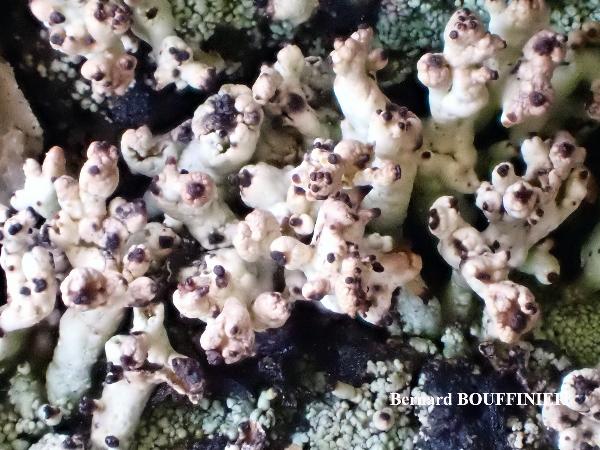
Bernard Bouffinier - Source: http://www.lichensmaritimes.org/index.php?task=fiche&lichen=251&lang=en
France, Cap de la Chèvre
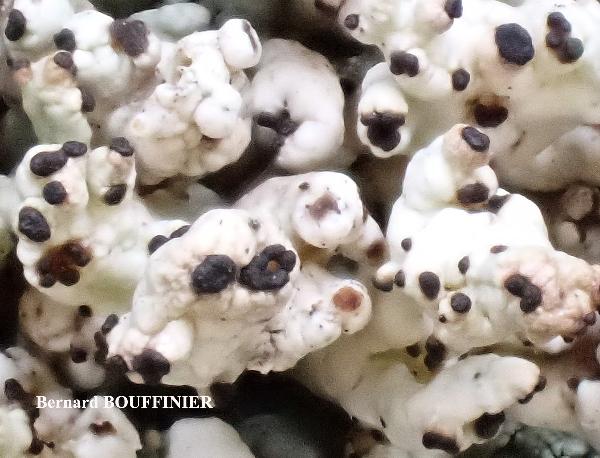
Bernard Bouffinier - Source: http://www.lichensmaritimes.org/index.php?task=fiche&lichen=251&lang=en
France, Cap de la Chèvre
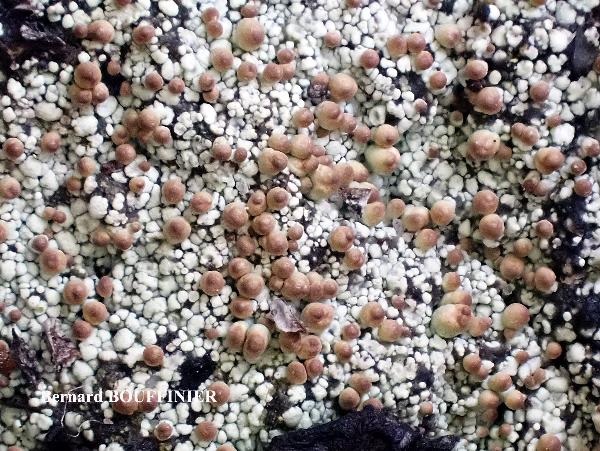
Bernard Bouffinier - Source: http://www.lichensmaritimes.org/index.php?task=fiche&lichen=251&lang=en
France, Cap de la Chèvre
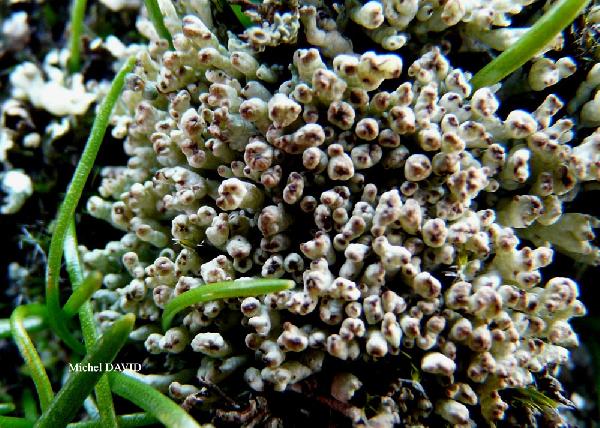
Michel David - Source: http://www.lichensmaritimes.org/index.php?task=fiche&lichen=251&lang=en
France, Kerloc'h
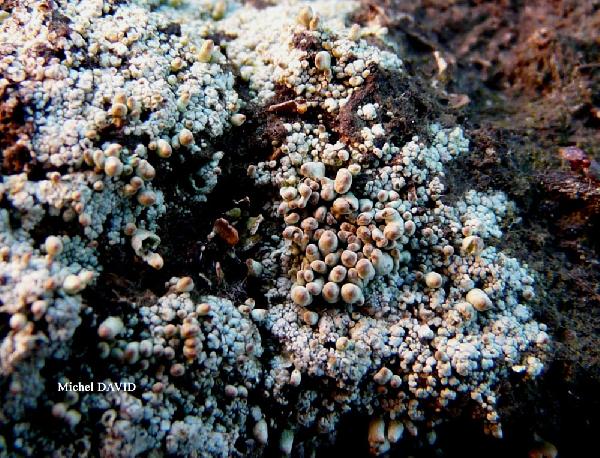
Michel David - Source: http://www.lichensmaritimes.org/index.php?task=fiche&lichen=251&lang=en
France, Kerloc'h
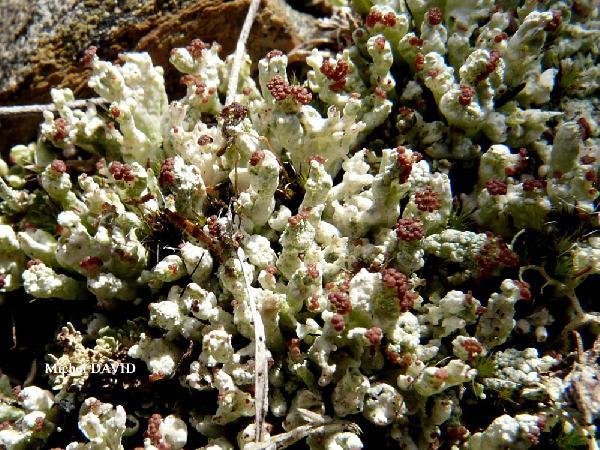
Michel David - Source: http://www.lichensmaritimes.org/index.php?task=fiche&lichen=251&lang=en
France, Telgruc
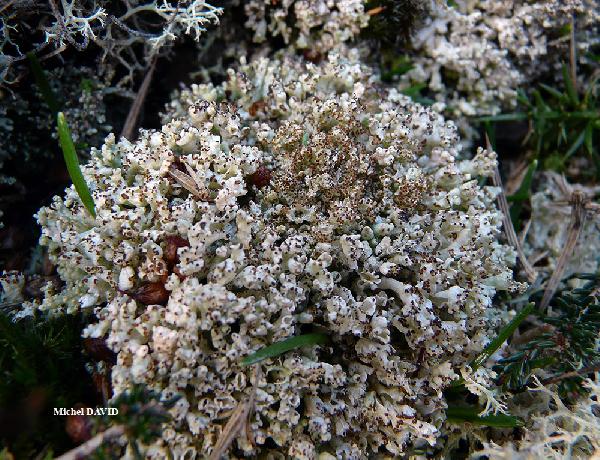
Michel David - Source: http://www.lichensmaritimes.org/index.php?task=fiche&lichen=251&lang=en
France, Camaret
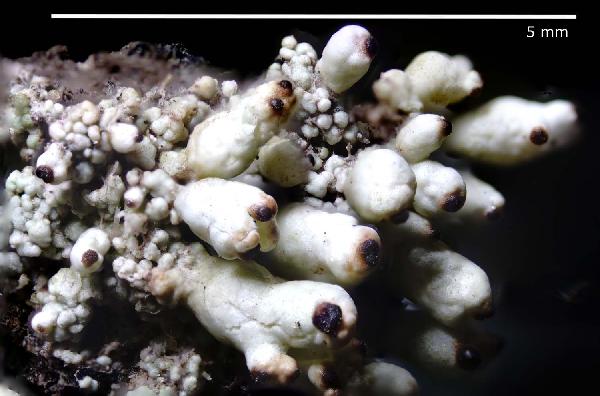
Marta González Garcia - Centro de Estudios Micologicos Asturianos
Santa María del Puerto (Somiedo-Asturias), 16-VII-2024, sobre suelo ácido, leg. & det. M. González, MGG-126.
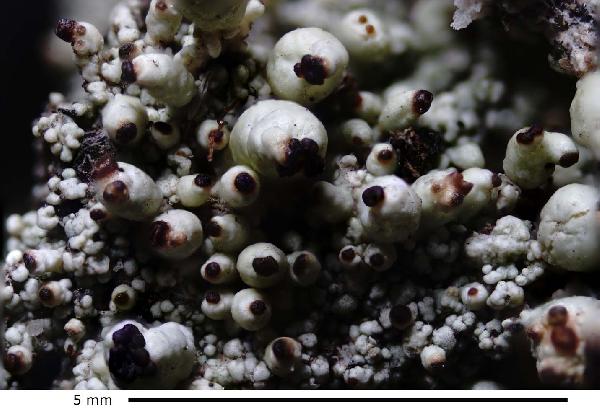
Marta González Garcia - Centro de Estudios Micologicos Asturianos
Santa María del Puerto (Somiedo-Asturias), 16-VII-2024, sobre suelo ácido, leg. & det. M. González, MGG-126.
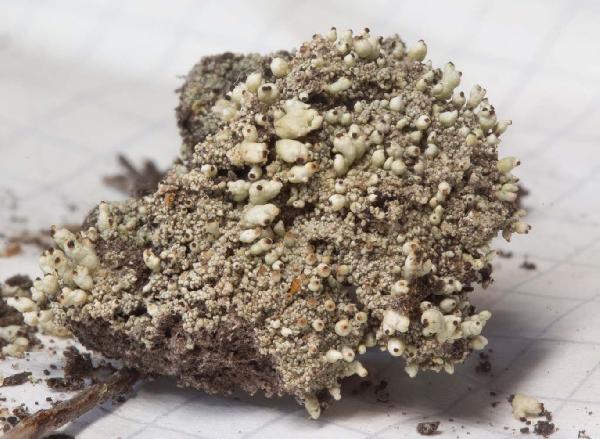
Marta González Garcia - Centro de Estudios Micologicos Asturianos
Santa María del Puerto (Somiedo-Asturias), 16-VII-2024, sobre suelo ácido, leg. & det. M. González, MGG-126.
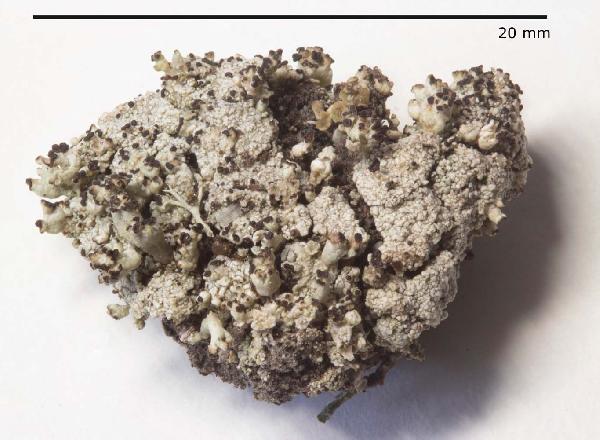
Marta González Garcia - Centro de Estudios Micologicos Asturianos
Santa María del Puerto (Somiedo-Asturias), 16-VII-2024, sobre suelo ácido, leg. & det. M. González, MGG-126.
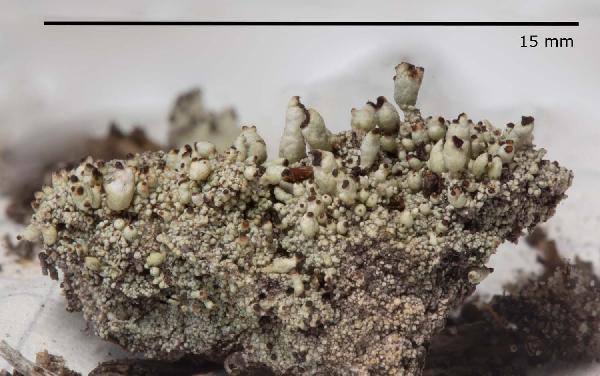
Marta González Garcia - Centro de Estudios Micologicos Asturianos
Santa María del Puerto (Somiedo-Asturias), 16-VII-2024, sobre suelo ácido, leg. & det. M. González, MGG-126.
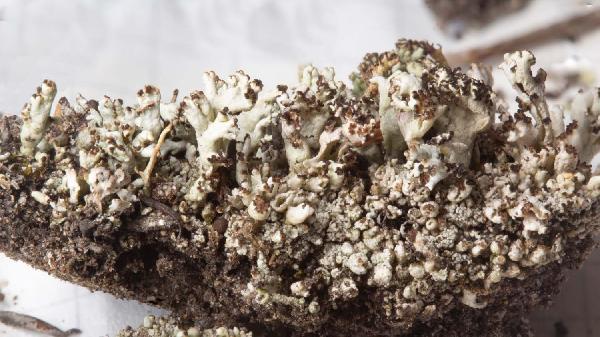
Marta González Garcia - Centro de Estudios Micologicos Asturianos
Santa María del Puerto (Somiedo-Asturias), 16-VII-2024, sobre suelo ácido, leg. & det. M. González, MGG-126.

Marta González Garcia - Centro de Estudios Micologicos Asturianos
Santa María del Puerto (Somiedo-Asturias), 16-VII-2024, sobre suelo ácido, leg. & det. M. González, MGG-126.
Growth form: Fruticose
Substrata: soil, terricolous mosses, and plant debris
Photobiont: green algae other than Trentepohlia
Reproductive strategy: mainly sexual
Commonnes-rarity: (info)
Alpine belt: rare
Subalpine belt: rather rare
Oromediterranean belt: extremely rare
Montane belt: very rare
Submediterranean belt: extremely rare
Padanian area: absent
Humid submediterranean belt: extremely rare
Humid mediterranean belt: absent
Dry mediterranean belt: absent

Predictive model
| Herbarium samples |


P.L. Nimis; Owner: Department of Life Sciences, University of Trieste
Herbarium: TSB (11504)
2001/11/29

Michel David - Source: http://www.lichensmaritimes.org/index.php?task=fiche&lichen=251&lang=en
France, Camaret


P.L.Nimis; Owner: Department of Life Sciences, University of Trieste
Herbarium: TSB (36806)
2008.02.25

Michel David - Source: http://www.lichensmaritimes.org/index.php?task=fiche&lichen=251&lang=en
France, Cap de la Chèvre

Gabriele Gheza - https://lichenidilombardia.home.blog
Italy, Piemonte, Biella, Val Sessera, 450 m
12/2018
very well-developed specimens, with almost no primary thallus

Gabriele Gheza - https://lichenidilombardia.home.blog
Italy, Piemonte, Biella, Val Sessera, 450 m
12/2018
very well-developed specimens, with almost no primary thallus

Bernard Bouffinier - Source: http://www.lichensmaritimes.org/index.php?task=fiche&lichen=251&lang=en
France, Cap de la Chèvre

Bernard Bouffinier - Source: http://www.lichensmaritimes.org/index.php?task=fiche&lichen=251&lang=en
France, Cap de la Chèvre

Bernard Bouffinier - Source: http://www.lichensmaritimes.org/index.php?task=fiche&lichen=251&lang=en
France, Cap de la Chèvre

Bernard Bouffinier - Source: http://www.lichensmaritimes.org/index.php?task=fiche&lichen=251&lang=en
France, Cap de la Chèvre

Michel David - Source: http://www.lichensmaritimes.org/index.php?task=fiche&lichen=251&lang=en
France, Kerloc'h

Michel David - Source: http://www.lichensmaritimes.org/index.php?task=fiche&lichen=251&lang=en
France, Kerloc'h

Michel David - Source: http://www.lichensmaritimes.org/index.php?task=fiche&lichen=251&lang=en
France, Telgruc

Michel David - Source: http://www.lichensmaritimes.org/index.php?task=fiche&lichen=251&lang=en
France, Camaret

Marta González Garcia - Centro de Estudios Micologicos Asturianos
Santa María del Puerto (Somiedo-Asturias), 16-VII-2024, sobre suelo ácido, leg. & det. M. González, MGG-126.

Marta González Garcia - Centro de Estudios Micologicos Asturianos
Santa María del Puerto (Somiedo-Asturias), 16-VII-2024, sobre suelo ácido, leg. & det. M. González, MGG-126.

Marta González Garcia - Centro de Estudios Micologicos Asturianos
Santa María del Puerto (Somiedo-Asturias), 16-VII-2024, sobre suelo ácido, leg. & det. M. González, MGG-126.

Marta González Garcia - Centro de Estudios Micologicos Asturianos
Santa María del Puerto (Somiedo-Asturias), 16-VII-2024, sobre suelo ácido, leg. & det. M. González, MGG-126.

Marta González Garcia - Centro de Estudios Micologicos Asturianos
Santa María del Puerto (Somiedo-Asturias), 16-VII-2024, sobre suelo ácido, leg. & det. M. González, MGG-126.

Marta González Garcia - Centro de Estudios Micologicos Asturianos
Santa María del Puerto (Somiedo-Asturias), 16-VII-2024, sobre suelo ácido, leg. & det. M. González, MGG-126.

 INDEX FUNGORUM
INDEX FUNGORUM
 GBIF
GBIF
 DOLICHENS
DOLICHENS
